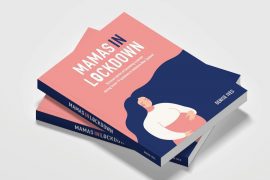By Nicole Tricarico
Do you find it concerning that as many as a third of women describe their birth experience as traumatic? But this isn’t even the whole story. There are potentially more women who aren’t traumatised as such, yet still feel upset, disappointed or let down after giving birth.
With such a large number of us feeling like this after birth, what effect might this be having – not only on us individually but on others around us, and on our birth culture?
“So, what?” you might say.
“Isn’t that just the way birth is?” (Even if it is, we are all worthy of healing if we feel upset or traumatised)
“Don’t we just get over it with time?” (The initial shock usually passes, but the meaning we take from what happened is usually carried with us until we resolve it)
“It’s just one day of our life.” (That can be carried into the present and be affecting us now in minor, or more impactful ways)
“You just have to move on.” (Moving on isn’t something that always just happens, most people need support to do this)
“My birth wasn’t as bad as hers.” (So, I shouldn’t complain, or my experience is not valid, is what we tell ourselves)
“It only matters that the baby is healthy – right?”
No, it doesn’t.
Resisting painful emotions also affects the positive ones
Every mother wants a healthy baby, which goes without saying. It’s time to start valuing the emotional health of mothers after birth too, and stop telling us that how we feel doesn’t matter. We also need to stop doing this to ourselves, minimising and dismissing our own feelings.
While we could talk about how we have a medicalised birthing system that doesn’t offer enough of the kind of care conducive to women feeling supported and satisfied with their births – let’s not go there today.
It’s appealing to believe we can just pack up feelings like anger, sadness, blame and guilt around our births in a nice neat box and leave it there to mind its own business. But is it really that simple?
Brené Brown captured why this is not so straightforward – “We cannot selectively numb emotions. When we numb the painful emotions we also numb the positive emotions.”
What impact could this be having on us when we don’t feel resolved about an experience like giving birth? An experience that many women place great importance on.
The meaning we take from birth leaves it mark
Humans are meaning-making beings. Whatever meaning, positive or negative that we have taken from our birth experience, can be carried unknowingly into everything we do. If we believe that we failed in some way, weren’t strong enough, or felt powerless, this could be colouring everything we do. Imagine carrying that around into daily life, parenting and relationships with others and ourselves.
Unfortunately in the western world, most of us have been conditioned to avoid feeling our feelings. It can be hard to be vulnerable and share with others, as we risk being judged and feeling ashamed or misunderstood. It’s common when we share upset or disappointment about giving birth, to not feel understood or validated. In our culture there are many shared ideas influencing us – that it’s not OK to complain or be a whiner, it’s not OK to be “sensitive”. That you should suck up hard things and not dwell on them, or in some cases we feel the need to compete or bond, and may share our own painful story, or in some cases our positive story. If we receive responses like this, it may stop us from sharing our experience again, or we might be careful who we share it with. We may be left feeling like we are “weak” or “sensitive” for feeling upset, stuck or unresolved about our experience.
See next page for the rest of the article…












This work is life altering in so many ways. Providing a new perspective for parents or birth workers to be with a birth can impact their lives emotionally, socially, and even physically. Thank you for sharing this, Nicole.